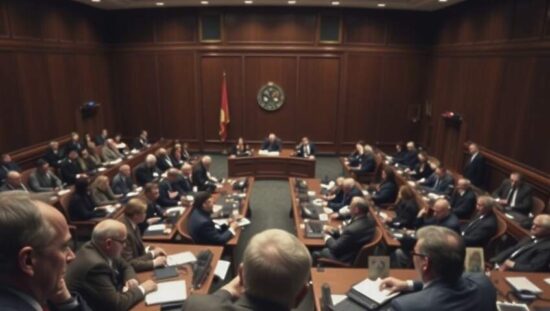The German government is preparing to unveil a sweeping package of deregulation measures aimed at easing the burden of bureaucracy on citizens, businesses and public administration. The initiative, dubbed the “Relief Cabinet” scheduled for Wednesday, follows the receipt of nearly 200 proposals from various ministries, according to sources within the Digital and State Modernization Ministry led by Karsten Wildberger (CDU). Approximately 20 of these proposals are slated to become concrete legislative drafts, with around eight potentially approved by the cabinet on Wednesday, including significant revisions to skilled worker immigration policies.
Labor Minister Bärbel Bas (SPD) has championed the effort, arguing for a “labor and social administration that keeps pace with the times – efficient and digital”. She intends to introduce several proposals focused on streamlining workplace safety regulations and furthering the digitization of labor administration. A key element of Bas’s agenda involves proposed changes to the requirement for companies to appoint safety officers. Currently, businesses with more than 20 employees are mandated to have such officers; Bas’s plan would remove this obligation for companies with fewer than 50 employees and limit the number of required officers in larger companies up to 250 employees. Critics argue that this deregulation could compromise worker safety and represent a rollback of hard-won protections.
Furthermore, the government is announcing the development of a digital agency dedicated to facilitating skilled worker immigration – the “Work and Stay Agency”. While presented as a flagship project of the modernization agenda, the agency’s effectiveness and potential for bureaucratic delays remain a concern among industry representatives. Questions are being raised about the resources allocated to the agency and whether it can truly expedite the immigration process or simply create another layer of administrative complexity.
The labor ministry estimates that these initiatives alone will generate a reduction in costs for the economy of approximately €200 million per year. However, economists are cautioning against viewing deregulation solely through a cost-saving lens, highlighting the potential societal and environmental consequences of reducing safety protocols and potentially weakening regulatory oversight. The approval of these measures will likely draw scrutiny from labor unions and opposition parties, who may question the long-term impact on worker protections and the overall quality of public services.





